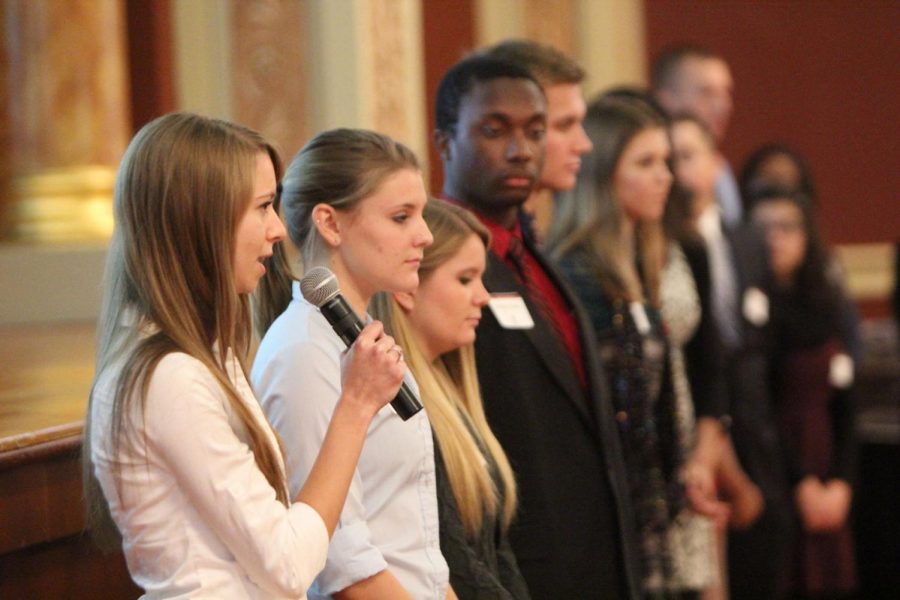Research Rookies gives students early start on research projects
December 2, 2014
Forty-seven students were honored for working on research projects in their areas of study Monday at the annual Research Rookies Reception.
Huskie Research Rookies was founded in 2010 with the hopes of encouraging freshmen and sophomores to start research projects early in their college careers. Research Rookies have represented all six undergraduate colleges, according to a pamphlet distributed at the event. There were 37 freshmen, sophomores and transfer students and 10 continuing Research Rookies celebrated at Monday’s event.
Julia Spears, associate vice provost for Engaged Learning, said she was amazed at the result of each student’s work. Spears said the main reason the Huskie Research Rookies came to be was because freshmen and sophomores weren’t getting the exposure to research upperclassmen were receiving.
“One of the things that we were trying to do is expand the number of opportunities that students have to engage in research, and what we found of when we took stock of the opportunities was that most of them were only for juniors and seniors and there was hardly any for freshmen,” Spears said. “We do a lot of recruiting at orientation, we do information and housing contracts that go out to new students, we do general marketing, but more than that we are trying to piggyback off of other programs.”
Ryan Whyte, sophomore biological science major, said his research project focuses on the synthesis of compounds that show a high enzyme inhabitation and demonstrate antimicrobial activity against bacterial pathogens.
“The purpose of [my mentor’s and my] research was to find compounds that would inhibit a metabolic pathway to help cure malaria and other infectious diseases,” Whyte said.
NIU President Doug Baker, who was at the reception, said he’s trying to build the Office of Student Engagement and Experiential Learning.
“… When the faculty went into this program they weren’t sure how well freshmen would do, but [I] have been amazingly impressed with the students,” Baker said. “A number of the professors have said after that initial year they’ve kept students in labs two, three, four years afterwards and it has allowed them to build longer-term research relationships and personal relationship.”







